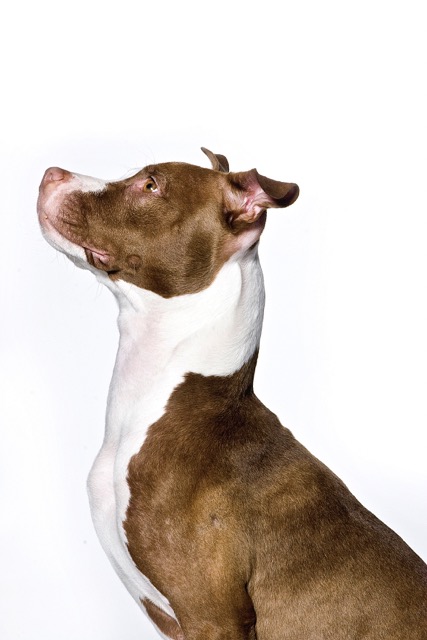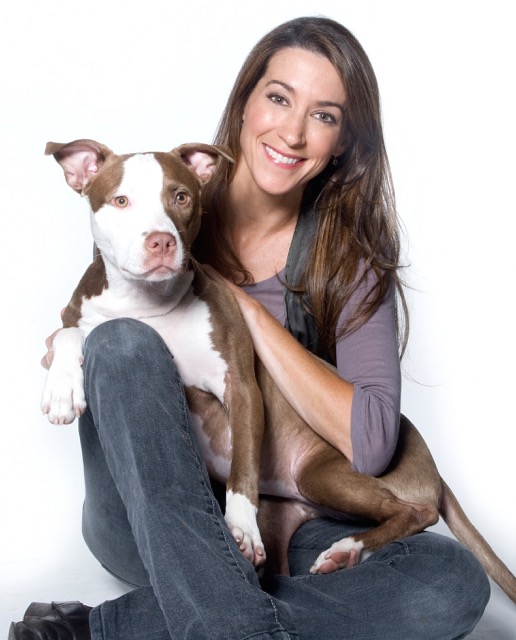
Stereotypes and Generalizations of the Pit Bull
Generalizations are a tricky business. On the one hand, they are necessary in order for us to more easily understand our complex world. On the other hand, by definition, generalizations don’t provide detailed information, nor are they always accurate.
When it comes to dogs, people seem to be wildly fond of generalizing. Trainers frequently hear people complain that their dog isn’t behaving as well as their previous dog of the same breed. This is one of the many examples of how we often assume that a grouping of dogs by breed or type is a surefire blueprint for behavior and personality. But, you know what they say about making assumptions. Or in this case, generalizations.
Certain generalizations are harmless. “Dogs are cute” is one that I can really get behind, because it’s implications could never result in anything problematic (except for maybe a child endlessly begging for a new puppy). However, other generalizations have much more serious implications, and perhaps none more so than the generalizations that surround pit bulls. Here are the two most dangerous ones: “Pit bulls are dangerous and a menace to any community” and “Pit bulls are the sweetest and best dogs in the world.”
Both camps of people who take an extreme stance on pit bulls are really doing this group of dogs a disservice. While a community that bans pit bulls does damage by potentially ripping apart people’s homes and choosing to euthanize dogs with potentially terrific temperaments, it is just as harmful to put a powerful and possibly dangerous dog in an inappropriate home under the guise that every dog of a certain type is sweet and easygoing. People who are not physically able to control a large dog, or people who don’t have the time to give their dogs adequate exercise and training frequently acquire dogs they have no business having because they have been sold on the idea of this type being “the best dogs in the world”.
The Reality of Pit Bulls
The reality of the pit bull as a group (pit bulls are, in fact, not a breed, rather a generic term covering a wide array of mixed breed dogs of a similar physical type) needs to be discussed in greater detail than sweeping statements like those above. Ideally, dogs should be described and evaluated on an individual basis. But, that seems to be an unrealistic expectation of us humans. Generalizing about dogs seems to be the easy route (in the short term anyway). When it comes to pit bulls, a little education might go a long way to stop the generalizations that cause people to be misled and dogs and people to potentially suffer.
One of the original intentions of the development of the pit bull type was for them to fight other animals. Pit bulls are also “high-drive” dogs. They can go from 0-60 in a heartbeat, and in terms of prey drive, they are in the upper echelon of the list of dogs most likely to chase smaller animals. This long history of selective breeding means some may have a strong propensity for this and will be more likely to be reactive towards other dogs. Any dog might have this problem, but the larger and stronger dogs can do more damage. We should also not ignore the fact that a pit bull with dog-human aggression problems poses a bigger threat than a smaller, less physically powerful type of dog with the same issues. But, pit bulls were not developed to be more prone to dog-human aggression than other dogs. In fact, they may even be less likely to have this issue (but, this is also a generalization, so again, the individual dog’s temperament should be of utmost concern).
Historical Context and Modern Perception
One hundred years ago, when dog fighting was more common, pure breed dogs like the Staffordshire Bull Terrier, the American Staffordshire Terrier, and the American Pit Bull Terrier were bred to be extremely friendly and gentle with people. Part of the reason was that even in a dog fight, handlers wanted to be able to get a hold of their dogs without getting bitten. Due to this general trait of human friendliness, one century ago the Pit Bull was one of the most popular family dogs in America.
Every type of dog has issues – no dog comes out of the box perfectly ready to live side by side with people. They all need some training to live with us, and why shouldn’t they? They are dogs – a very different species than us. Just as we wouldn’t be ready to go live with a group of Kangaroos in the Australian outback, a dog shouldn’t be expected to come into a home and get everything right from day one. All dogs need our guidance and help so that they can live with us happily and comfortably. But, considering the current climate and living conditions, perhaps none need it more than the pit bull. Pit bull owners are ambassadors for this type of dog, and they are under more scrutiny because of the kind of dog they have chosen. Therefore, a well thought out training program should be employed by all pit bull owners to ensure they have the best chance possible of adding a well mannered bully breed dog to their community.
The Role of Pit Bull Owners
People who love pit bulls sometimes become (understandably) defensive because of all the unpleasant notions floating around about the type of dog they love. But, people need to be aware of just how strong and determined their dog may be. A failure to do so often means that aggression problems go unaddressed because people only see a sweet dog they love and sometimes incorrectly believe would never hurt a fly.
Just as all pit bulls aren’t dangerous, they are also not all big gentle mushes. One of the biggest problems with the “all pit bulls are great” generalization is that people are often blinded by the notion that their dog is loving and sweet, without consideration of potentially troublesome issues. An owner who can’t or won’t do the management and training necessary for their dogs are putting other people, dogs, and other critters at great risk simply by having a pit bull. The same is true of all dogs, but especially with more powerful types like pitties, German Shepherd Dogs, and Dobermans.
Because pit bulls are so powerful, it is especially important that they be taught to be mannerly and social and to exhibit great impulse control using methods based on positive reinforcement by people well versed in this methodology. If all pit bulls were treated in this fashion, it might help some of those generalizations fade, simply by adding more well behaved pit bulls to the world. Realistically, not all pit bulls are going to be well mannered. Nor are all dogs of any other type or breed. There are dogs with problems in the world, and not all owners will be able to manage and overcome those problems. Some things are hardwired and some people are not equipped to face certain dog behavior challenges.
The Bigger Picture
Pit bulls have been a hot topic for a long time. They are at the heart of breed specific legislation, which bans certain types of dogs (mainly, the bully breeds), and the laws vary from state to state. They are also at the heart of nature vs. nurture debates, dog fighting cases, sensationalist TV shows, and more. Perhaps they are the canine equivalent of rock and roll in the 1950’s: they are loved by some, hated by others, banned in certain areas, and are always controversial. It makes me wonder why more pitty puppies out there aren’t named Elvis.
Within the last 150 years, we have approximately tripled the number of pure-bred dogs on the planet. Add in mixed breed dogs, and the spectrum of behavior and physical attributes within the canine community is almost infinite. Clearly, generalizations applied to such a diverse and unconventional species as the old Canis lupus familiaris should be taken with a few grains of salt. Careful consideration of an individual dog’s personality and behavioral tendencies is in order.
Final Thoughts
However, a few generalizations that do ring true are that all dogs deserve an education based on a positive approach, they deserve a family that carefully considers the necessary management to keep them safe and set them up for success, and they deserve to be considered as an individual with a unique personality.
By Mike Lustig: Dog Behavior Counselor and Trainer with Andrea Arden Dog Training
Explore Our Dog Training Courses
Educate your dog with Andrea Arden and her team.
New York | Los Angeles | Connecticut
Share
- Group Classes
- Private Lessons
- Virtual Training
- Puppy Play Groups
- Puppy Training
- Articles & Advice



